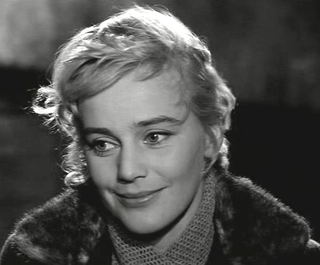
Maria Margarethe Anna Schell was an Austrian-Swiss actress. She was one of the leading stars of German cinema in the 1950s and 1960s. In 1954, she was awarded the Cannes Best Actress Award for her performance in Helmut Käutner's war drama The Last Bridge, and in 1956, she won the Volpi Cup for Best Actress at the Venice Film Festival for Gervaise.
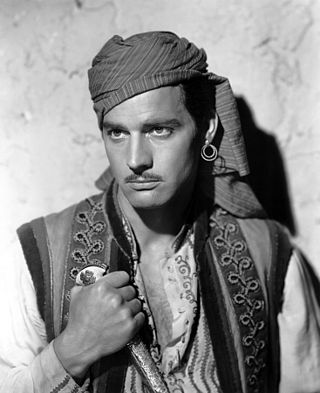
Paul Hubschmid was a Swiss actor. He was most notable for his role as Henry Higgins in a production of My Fair Lady. In some of his Hollywood films he used the name Paul Christian. He appeared in dozens of films and television series between 1938 and 1991. Many of these were German and International productions.

Die Ratten is a 1955 West German drama film directed by Robert Siodmak. It is an adaptation of the 1911 play The Rats by Gerhart Hauptmann, but sets the story in the early 1950s, shortly after the Second World War.
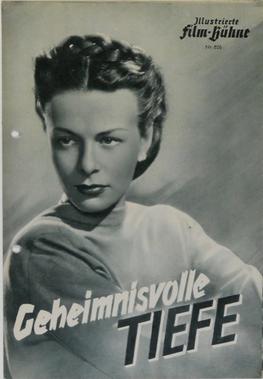
Mysterious Shadows is a 1949 Austrian drama film directed by G. W. Pabst and starring Paul Hubschmid, Ilse Werner, and Elfe Gerhart. It was shown at the Venice Film Festival. It was shot at the Rosenhügel Studios in Vienna and at the Hoher Dachstein ice caves. The film's sets were designed by the art director Isabella Schlichting and Werner Schlichting

Confess, Doctor Corda is a 1958 West German crime film directed by Josef von Báky and starring Hardy Krüger, Elisabeth Müller and Lucie Mannheim. It is considered to be a film noir, one of a number made in Germany during the decade. It was shot at the Spandau Studios. The film's sets were designed by the art directors Erich Kettelhut and Helmut Nentwig.

The Zürich Engagement is a 1957 West German comedy film directed by Helmut Käutner and starring Liselotte Pulver, Paul Hubschmid, and Bernhard Wicki.It is also known by the alternative title The Affairs of Julie.

Until We Meet Again is a 1952 West German romantic drama film directed by Gustav Ucicky and starring Maria Schell, O. W. Fischer, and Karl Ludwig Diehl. It was shot at the Göttingen Studios and on location at Lake Como, Slough in England, Guatemala and Zweibrücken. The film's sets were designed by the art directors Hans Ledersteger and Ernst Richter.

Temptation in the Summer Wind is a 1972 West German romantic comedy film directed by Rolf Thiele and starring Helmut Käutner, Yvonne Furneaux, and Paul Hubschmid.

Voyage to Italy, Complete with Love is a 1958 West German romantic comedy film directed by Wolfgang Becker and starring Paul Hubschmid, Susanne Cramer and Hannelore Schroth. It was shot at the Spandau Studios in West Berlin with extensive location shooting around Italy including Venice, Assisi, Rome, Naples and Sorrento. The film's sets were designed by the art directors Emil Hasler and Walter Kutz.
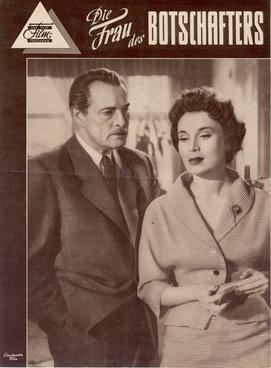
The Ambassador's Wife is a 1955 West German spy film directed by Hans Deppe and starring Paul Hubschmid, Ingrid Andree and Antje Weisgerber.

Diary of a Married Woman is a 1953 West German comedy film directed by Josef von Báky and starring Maria Schell, O. W. Fischer and Margarete Haagen.
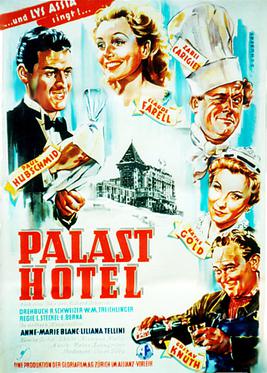
Palace Hotel is a 1952 Swiss-West German drama film directed by Emil Berna and Leonard Steckel and starring Paul Hubschmid, Käthe Gold and Anne-Marie Blanc. It was made at the Bellerive Studios in Zürich. The film's sets were designed by the art director Jean d'Eaubonne.
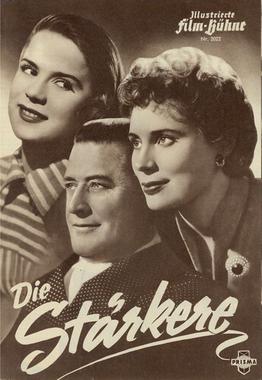
The Stronger Woman is a 1953 West German drama film directed by Wolfgang Liebeneiner and starring Gertrud Kückelmann, Hans Söhnker and Antje Weisgerber. It was shot at the Tempelhof Studios in West Berlin and on location at the Schloss Büdingen. The film's sets were designed by the art directors Emil Hasler and Walter Kutz.

My Husband's Getting Married Today is a 1956 West German comedy film directed by Kurt Hoffmann and starring Liselotte Pulver, Johannes Heesters and Paul Hubschmid.

Arlberg Express is a 1948 Austrian thriller film directed by Eduard von Borsody and starring Paul Hubschmid, Elfe Gerhart and Iván Petrovich.
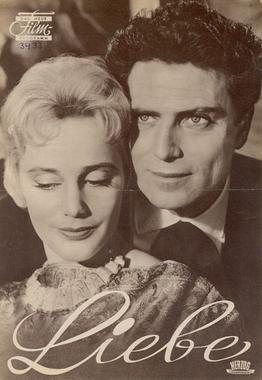
Love is a 1956 West German-Italian drama film directed by Horst Hächler and starring Maria Schell, Raf Vallone and Eva Kotthaus. It is an adaptation of the 1951 novel Vor Rehen wird gewarnt by Vicki Baum.

The Red Hand is a 1960 West German crime thriller film directed by Kurt Meisel and starring Paul Hubschmid, Hannes Messemer and Eleonora Rossi Drago.

Every Day Isn't Sunday is a 1959 West German comedy film directed by Helmut Weiss and starring Elisabeth Müller, Paul Hubschmid and Dietmar Schönherr. The title refers to a traditional song by Carl Clewing which features in the film.

One Woman Is Not Enough? is a 1955 West German drama film directed by Ulrich Erfurth and starring Hilde Krahl, Hans Söhnker and Rudolf Forster. It was shot at the Tempelhof Studios in West Berlin and on location in Munich and around Lake Starnberg. The film's sets were designed by the art directors Erich Kettelhut and Johannes Ott.
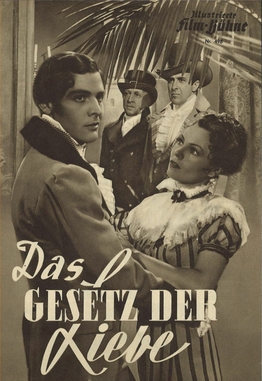
Law of Love is a 1949 German historical drama film directed by Hans Schweikart and starring Hilde Krahl, Paul Hubschmid and Ferdinand Marian. Production began in 1944 during the Nazi era and was completed by 1945, but the end of the Second World War led to delays in its distribution as also occurred with several other productions. It was not released for a further four years until its premiere in Erlangen, Bavaria in the newly established West Germany. Its West Berlin premiere took place in May 1950.




















